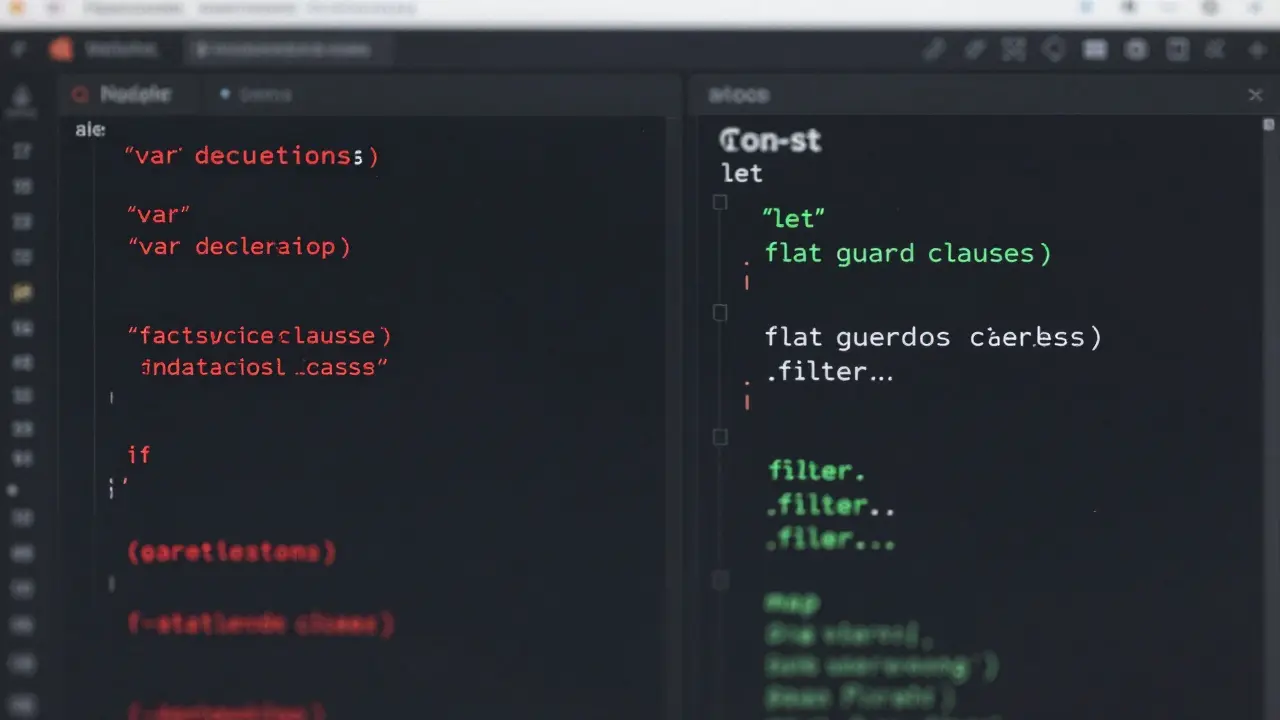Coding Best Practices: Small Habits That Prevent Big Headaches
Bad code costs teams time and money. A confusing function name or a missing test can turn a quick fix into a multi-day crisis. Use simple, repeatable habits to make your code easier to change, debug, and ship.
Start with clear names. Give functions and variables names that say what they do. "calculateInvoiceTotal" beats "doIt" every time. When names are clear, future you (and your teammates) spend less time guessing.
Keep functions small and focused. If a function is longer than a screen, split it. One job per function makes testing easier and reduces hidden bugs. Small functions also read like a story: you can scan intent without decoding dense blocks.
Write Tests and Use Automation
Automated tests save hours. Begin with unit tests for core logic and add a few integration tests for important flows. Tests act like a safety net when you refactor. Pair tests with continuous integration so every push runs checks automatically.
Use linters and formatters. Tools like ESLint, Black, or Prettier keep style consistent and catch common mistakes early. Configure them once and let automation enforce the rules—no arguing over tabs vs spaces in code reviews.
Work Smart with Version Control
Commit early, commit often. Small, focused commits make it easier to find the cause of a bug and to roll back changes. Write concise commit messages that explain the "why," not just the "what." Branch for features and open small pull requests for easier reviews.
Do code reviews and give real feedback. Reviews aren't just for catching errors; they share knowledge. Ask questions rather than order changes. Point out potential edge cases and suggest simpler approaches when the code feels complex.
Document intent, not every line. Add short comments where the reasoning isn't obvious. Use README files to explain setup, architecture, and key decisions. Good docs reduce onboarding time and prevent repeated questions in chat.
Refactor regularly. If a module grows messy, carve out time to clean it. Refactoring without adding features keeps the codebase healthy and keeps future changes fast. Use tests to make refactoring safe.
Handle errors clearly. Log useful context and avoid swallowing exceptions. Users and debuggers both benefit when errors include what happened and where. Prefer explicit error handling over unclear return values.
Measure performance, don't guess. Profile slow code before optimizing. A fast algorithm beats premature micro-optimizations that add complexity. Keep critical paths simple and benchmark changes that claim speed gains.
Finally, practice restraint: follow YAGNI—You Aren't Gonna Need It. Add features when they matter, not because they sound cool. Less unnecessary code means fewer bugs and faster development.
Adopt these habits one at a time. Tackle naming and small functions first, then add tests and automation. Over months, these small changes compound into a calmer codebase and faster delivery.
Try pair programming for tricky parts and keep a dev sandbox for experiments. Small experiments reduce risk and teach faster than long design debates using anonymized production-like data regularly.



